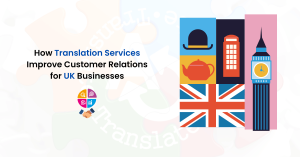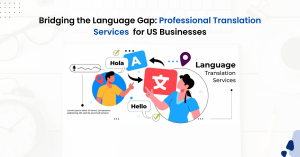The upheaval of 2020 made us appreciate the fantastic work done by many quietly heroic people. It is only in the face of the scary uncertainty that we really understood the vital role played by many different sectors in our society: carers for children and vulnerable people, nurses, hospital porters and cleaners, postmen and women, teachers, shop assistants, and so on.
But there is another unsung hero that has not been mentioned, the community interpreter.
What is a community interpreter?
A community interpreter is a person who enables communication between public services, governmental bodies and agencies and people who are not fluent in the language of the state. The person who helps healthcare, law enforcement, welfare and education sectors provide their services on the basis of equality, independent of recipients’ language proficiency.
At our service every day
We are talking about the everyday interpreter. A person who makes it possible for a refugee to tell their heart-wrenching story; a person who helps the doctor to deliver to their patient a life-changing diagnosis; a person who helps a victim to find justice. A person who gives voice to people who cannot speak for themselves because they do not speak the language of the majority.
This is a person who can be waiting for three hours in court for the case to start, only for the case to be discharged and rescheduled. A person who spends two hours crossing the city so that they can interpret at a fifteen-minute doctor’s consultation. A person who is woken up in the middle of the night to attend an emergency at the local police station.
It is a person who is full of compassion and empathy and is not afraid to show them despite the need to remain detached and professional during even the most emotionally charged events. Also, a person who feels it a privilege to interpret at an inter-cultural wedding or child baptism.
And these days, despite the danger of infection, community interpreters continue to do their job in our hospitals, care centres and other settings.
Who are these people?
One amazing fact about community interpreters is that very often people find themselves in this role by chance and start doing this demanding job just out of the goodness of their hearts, to help the members of their community.
These people often have very little knowledge of the principles of community interpreting and do not possess sufficient interpreting skills, purely because they were never trained to do what they do.
However, they are worthy of our admiration and recognition, because instead of saying “no, I am not trained to do that”, leaving their compatriots in a difficult situation, they brace themselves and do their best with their can-do attitude.
Recognition and support
These people are essential for the maintenance of fairness and equality in our societies, and they deserve help and support from us.
Here in Ireland, we find that a lot of community interpreters are fluent English speakers from various language minorities, propelled to their interpreting role purely by community pressure. And this situation can be found all over the world these days.
We see significant movement of people fleeing natural or political disasters; new communities can spring up in various countries nearly overnight. With this fluidity of population, it is unrealistic to expect each country to have a ready-made supply of professional interpreters in every new language. To bridge the gap in communication, the brave souls from new communities undertake to speak for their compatriots.
How can we help?
What can we do to support and help these wonderful people?
Recognition
First of all, let us recognise their role and applaud their courage. To become a professional interpreter, one has to study linguistics for four or five years. The community interpreters that we are speaking about were denied this opportunity. They take a leap of faith, learn on the job, and try to do their best.
Appropriate upskilling
Secondly, we should help these people to upskill. Most likely, they have no time, money, or opportunity to go for lengthy in-depth training. What we can do, though, is offer them bite-size, affordable training, to help them improve one skill at a time. As the Tesco slogan goes, “every little helps”. And if after an hour’s webinar these interpreters learn something about interpreting that will make their lives a bit easier and their service a bit more professional, let give them this chance.
Protection & education
Thirdly, we need to protect our interpreters and educate others on how to work with them. We should be aware of inappropriate use of community interpreters in some settings and work together to ensure this does not happen.
One such alarming situation is when children or teenagers are asked to act as community interpreters. Unfortunately, this happens quite a lot. With a higher propensity to pick up a new language – spending more time on the internet and social media – and the memories of learning English in their native country, younger people often have a good grasp of English and are tasked with interpreting between members of their community and government bodies.
A young person could end up interpreting in an immigration setting about hardships and persecution that another person suffered at home before they left the country. Or there are recorded cases of children interpreting for their parents in sensitive medical settings. It is extremely inappropriate to have examples like this, but they happen every day.
What we can do here is to ensure that public services – the main users of community interpreting – are educated about the correct and appropriate way of procuring interpreting services and understand that the use of relatives or children as interpreters is generally not good practice.
Regulation
Lastly, it is important for governments and public bodies to introduce and promote standardised training and certification regulations for community interpreting, and also to ensure that interpreters are paid well for their services and can make a worthy long-term career out of it. At the end of the day, with each assignment the interpreter gets better at what s/he does, and it makes sense to encourage them to stay in community interpreting.
TRANSLIT’s support
We in TRANSLIT appreciate and value our fantastic team of freelance interpreters. To help them deal with the challenges outlined above, we created a series of short online training events that provide interpreters with the opportunity to improve their skills in a short space of time and to see the results. One of our offerings is a value-packed six-hour programme in community interpreting, which can help interpreters take their skills to a totally new level. You are welcome to learn more and register here.
/By Svetlana O’Farrell, TRANSLIT Training Development Manager/








